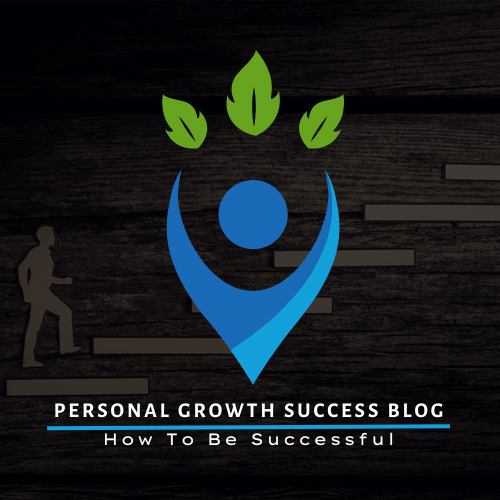
Have you ever felt that self-doubt is holding you back from achieving your goals and living your best life? You are not alone. Chronic self-doubt is a common experience that can have a negative impact on our mental health, relationships, and overall quality of life. When left unchecked, self-doubt can lead to feelings of fear, a lack of confidence, and negative self-talk. This is why it’s important to learn how to overcome self-doubt and build confidence in ourselves. In this guide, we will discuss how to identify the root cause of our self-doubt, challenge negative thinking patterns, focus on our strengths, set achievable goals, surround ourselves with positive people, practice self-care, face our fears, and celebrate our successes. By following these steps, we can build confidence and improve our mental health.

1. Identify the Root Cause of Your Self-doubt
Self-doubt is a common feeling that many people experience in their daily lives. It can stem from causes such as anxiety, fear of failure, and trauma. To overcome self-doubt, it is essential to identify the specific cause that triggers it. Take some time to reflect on your negative thoughts and behaviors and try to identify any patterns or recurring thoughts.
If you have identified a particular cause for your self-doubt, understanding why you have it can help you approach it. For example, if your self-doubt is due to fear of failure, then you may need to change your mindset and view failure as an opportunity to learn and grow. If your self-doubt is due to traumatic experiences, seeking help from a mental health professional can be an effective way to address the root cause and manage the symptoms.
2. Challenge Negative Self-talk
Negative self-talk can be one of the biggest obstacles towards building self-confidence. It is all too easy to fall into the trap of believing negative thoughts, and this can have a detrimental impact on our mental health. One of the most important steps towards overcoming self-doubt is learning to challenge negative self-talk. Identifying the negative thoughts and understanding their impact is the first step to replacing them with more positive, self-assuring thoughts.
One of the best ways to challenge negative self-talk is through the use of positive affirmations or counter-thoughts. When a negative thought arises, acknowledging it, and immediately replacing it with a positive affirmation can help to rewire the brain and turn negative self-talk into more positive self-talk. Consistently doing this can help us build the habits we need to overcome self-doubt and build self-confidence. With practice, we can train our brains to think positively, and in turn, feel more confident about ourselves and our abilities.
3. Focus on Your Strengths
To overcome challenges in self-doubt and build confidence, it’s important to focus on your strengths. Begin by identifying your personal strengths, which could be specific skills or personal qualities. Take time to reflect on your past accomplishments and recognize the strengths that helped you achieve them. This process will help you understand your potential and capabilities.
Once you have identified your strengths, find opportunities to use them in your daily life and work. This could involve taking on tasks that require your particular skills or using your personal qualities to connect with others. By using your strengths regularly, you’ll develop a sense of mastery and confidence in your abilities. Additionally, try to use positive self-talk to reinforce your strengths and shift your focus away from your doubts. Remind yourself of your abilities, talents, and past successes. If you catch yourself thinking negatively, replace those thoughts with positive ones that emphasize your strengths.
Remember that everyone has strengths and weaknesses, and focusing on your own unique strengths can help build confidence and overcome self-doubt. By focusing on what you are good at and how you can use those strengths to make a difference in your daily life, you’ll be better equipped to tackle challenges and take on new opportunities. In turn, your confidence will grow, and your doubts will diminish.
4. Set Achievable Goals
Setting achievable goals is an essential strategy for overcoming self-doubt and building confidence. It is a process that enables you to break down your vision for the future into small and feasible actions that you can take every day towards achieving your dreams. You can start by creating a clear picture of where you want to be in the future and what you want to accomplish.
Once you have your vision in mind, the next step is to create a plan of action. List the steps you need to take to achieve your goal, and make sure they are small and reachable. Having achievable goals will give you a sense of accomplishment every time you complete a task, and over time, will boost your confidence.
Accountability can also play a crucial role in goal-setting. You can talk to a mentor, coach, or friend who can support you through the process and keep you accountable for achieving your goals. This person can help you stay on track, offer advice and motivation, and celebrate your successes with you.
Finally, setting a deadline for each goal can give you the urgency needed to take action towards achieving it. Assign a specific date or timeline for each goal and track your progress along the way. This will enable you to see how far you’ve come and how much closer you are to achieving your bigger vision.
5. Surround Yourself With Positive People
Surrounding yourself with positive people is an important step in overcoming self-doubt and building confidence. The dynamics of human relationships have a tremendous impact on an individual’s quality of life, and positive social interaction can help silence negative self-talk while generating feelings of appreciation and worthiness.
Individuals who provide support and encouragement, such as friends and family members who believe in an individual’s abilities, are especially important in building self-confidence. Spending time with these people can help to weaken self-doubt and generate feelings of appreciation and worthiness.
If an individual is struggling to find positive people in their life, there are many ways to actively seek them out. Joining groups with similar interests, attending social events, or reaching out to acquaintances who offer support are all great ways to start. By surrounding oneself with positive people, an individual can strengthen their self-confidence and improve their overall quality of life.
6. Practice Self-care
One of the most important things we can do to overcome self-doubt and build confidence is to practice self-care. Self-care is all about taking intentional steps to support and nurture our physical health, mental health, and emotional well-being. By recognizing our own needs and taking steps to meet them, we can reduce stress, manage our emotions, and maintain a more positive outlook.
When we’re feeling stressed or overwhelmed, self-care can be especially important. This might mean taking a break to stretch or go for a walk, or spending some time doing something we enjoy, like reading or listening to music. It’s also important to prioritize physical health by getting enough sleep, eating nutritious foods, and staying active. By taking care of our bodies, we’re better able to manage stress and maintain a positive attitude.
7. Face Your Fears
Facing your fears is a crucial step towards overcoming self-doubt and building confidence. While it can be a challenging process, the rewards are worth it. The first step is to identify what it is that you’re afraid of and why it causes fear. This can help you develop a plan for facing that fear and moving past it.
It’s important to start with small and gradual steps towards facing your fear. For example, if you’re afraid of heights, start by standing on a chair or a low platform and gradually work your way up to higher places. If you’re afraid of public speaking, start with a small and trusted group of friends or family members and then gradually work your way up to larger audiences.
It’s important to remember that facing your fears doesn’t mean eliminating fear altogether. Rather, it’s about learning to manage it. Taking small steps can help build up your confidence and make it easier to face bigger challenges. Seeking support from a mental health professional or a trusted friend can also help you stay motivated and stay on track towards facing your fears.
8. Celebrate Your Successes
Celebrating our successes is an important aspect of building confidence and overcoming self-doubt. Too often, we focus on negative aspects of our experiences, which can lead to feelings of defeat and hopelessness. By celebrating our successes, we shift our focus to the positive aspects of our experiences, allowing us to feel a sense of pride in our accomplishments.
One simple and effective way to celebrate successes is to make a list of our accomplishments, review it regularly, and give ourselves credit for our hard work. By acknowledging our achievements, we are able to see how far we have come and gain a sense of confidence in our abilities.
Another way to celebrate our successes is to reward ourselves for our accomplishments. This could be something as simple as purchasing a small treat or setting aside time to do something we enjoy. The key is to recognize and acknowledge our efforts, no matter how small they may seem.
Finally, practicing gratitude is a powerful way to celebrate our successes. By focusing on the positives in our lives, we are able to cultivate a sense of appreciation for what we have achieved and the progress we have made towards our goals.

Conclusion
In conclusion, overcoming self-doubt and building self-confidence is a journey that requires consistent effort and intentional habits. By practicing gratitude, celebrating our successes, and recognizing our achievements, we can develop a positive and healthy mindset. Remember that self-doubt is a habit, and we can overcome it by building better habits. Choose one or two strategies from the list provided and implement them for a week or two. Overcoming self-doubt is not an overnight process, but with regular effort, we can become happier, more motivated, and more confident individuals.








